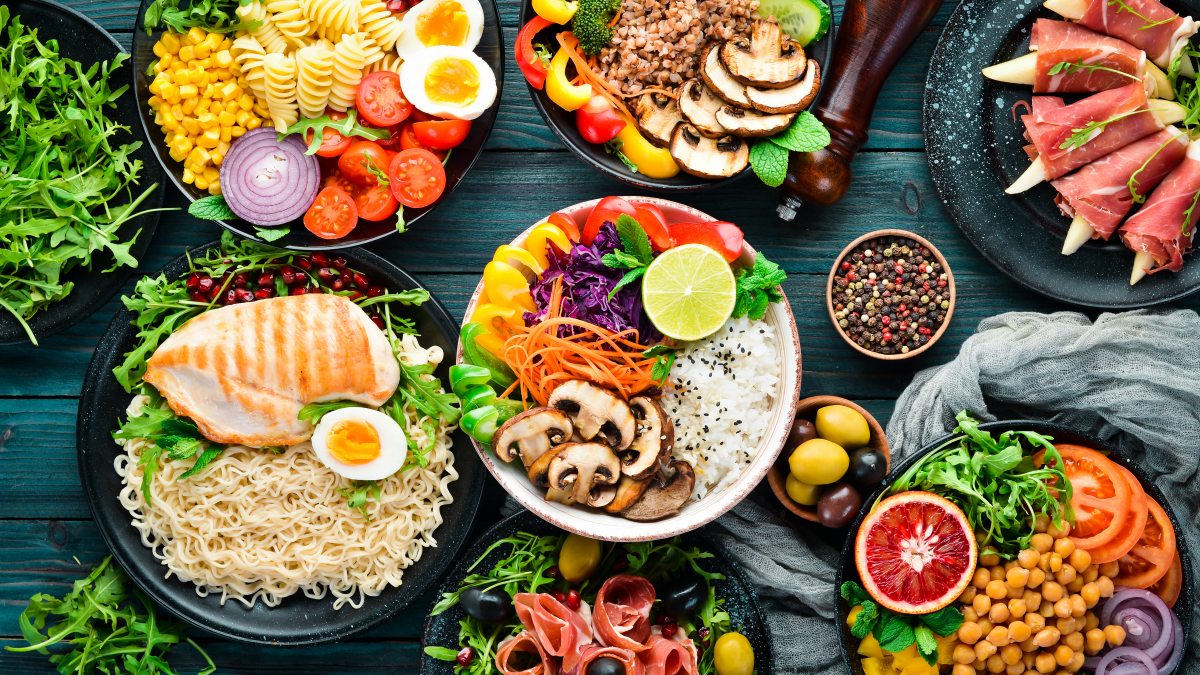Learning about the broader contexts of food
Focusing on topics ranging from North Carolina’s pork industry to school lunches, the College of Arts & Sciences' "Southern Food Studies: Food and Race in America” course is causing some Carolina students to think twice about the food on their forks.

Food is one of the most universal and ubiquitous human experiences. It’s so commonplace that many of us rarely think about the broader political and ethical contexts behind it.
But after taking the “Southern Food Studies: Food and Race in America” course taught by American studies instructor Kelly Alexander this fall, some Carolina students are thinking twice about the food on their forks.
“All of my goals of what students should learn from the class are not food. They’re critical thinking skills, critical arguing skills, the ability to connect politics and ethics in everyday life,” Alexander said. “That’s what I want students to come out with, but I think that you can use food as a vehicle to understand a whole bunch of important issues — great and small, in your family, in your world, in your American political life. It’s just a really powerful lens.”
Informed by current events in the South and around the world, the College of Arts & Sciences class focused on topics ranging from North Carolina’s pork industry to school lunches. While the topics varied widely, key issues such as race, class, gender and economics were recurring themes throughout the interdisciplinary course.
“Although the topic changes, everything that we’ve talked about prior ultimately comes back into play,” said Claire Bunschoten, a doctoral candidate in the American studies department who served as the course’s graduate research consultant. “Each week offered something different, but as we get into the stakes and the ethics and politics, we can drill down to one issue that we can then take and think about with each subsequent topic.”
With some topics, such as discussions about obesity, evoking intensely personal responses, the students worked to foster a supportive community.
“There was never a time that I felt disengaged from the class,” said Asya Earle, a first-year psychology major from Sanford, North Carolina. “At the end of the day, I felt like my classmates were my friends. It was just a very loving community, and being a first-year, that meant a lot to me.”
Students also interacted through a class-wide Instagram page, where they responded to various writing prompts.
“I’m definitely a visual learner. I like to see things. I like to read things,” Earle said. “Because we discussed topics that were pretty emotionally charged, it made Instagram posts very interesting to go through. It was really nice seeing it all come together and seeing the array of different personalities and backstories that came together on that Instagram page.”
For one assignment, Bunschoten and Alexander tasked students with creating cakes as a means of political expression, inspired by Becca Rea-Holloway, a baker well-known on Instagram.
“The conversations that we’re having in class are happening way outside of our classroom,” Bunschoten said. “Part of the course’s Instagram [account] was thinking about how we could be a part of that larger conversation, to use this platform and this space to further our conversations, while also creating a visual culture for a class to think about, too.”
The course also provided opportunities for students to get hands-on experience in their kitchens — a process that helped students better understand the political, historical and cultural contexts of the issues they were studying.
Early in the semester, students followed federal guidelines for school lunches to create their own takes on the midday meal. Later, Alexander led the class in a virtual biscuit-making demonstration after students read “Beating the Biscuits in Appalachia: Race, Class, and Gender Politics of Women Baking Bread” by Elizabeth Engelhardt, the senior associate dean for fine arts and humanities in the College of Arts & Sciences.
“You get that knowledge in your body, and something clicks in your brain, you realize that all of these things are interrelated,” Bunschoten said. “Thinking not just visually or logically, it just changes things.”
Students culminated their time in the class with essays that explored an area of food studies related to their own experiences and interests. Levi McCracken, a senior political science and Southern studies major, explored the Appalachian identity through the lens of moonshine for his essay.
McCracken, who is from Clyde, North Carolina, said that the class helped him better understand parts of his own identity and consider the broader contexts of the food on his plate.
“I went into the class thinking it was more of a historical understanding of what Southern food is, but leaving the class, I realize that you can’t encapsulate the South and food in one particular way,” he said. “But more importantly than that, I’ve realized how political food is, how it can be used as a means of resistance, and culturally, how one can take ownership of a food, how one can appropriate food and the personal importance people place with the food they have.”




